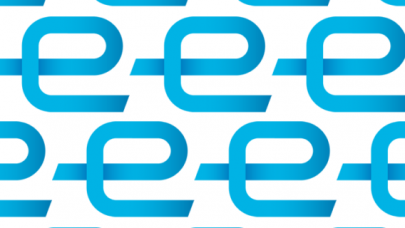
Esperanto Works to Fill the Software Gap for RISC-V AI Servers
April 22, 2023
Esperanto Technologies is working to accelerate software support for its novel, high-performance AI chips. The company has ported a large-language model (LLM) f Read more…

Google Claims Its TPU v4 Outperforms Nvidia A100
April 6, 2023
A new scientific paper from Google details the performance of its Cloud TPU v4 supercomputing platform, claiming it provides exascale performance for machine le Read more…

Ceremorphic Touts Its HPC/AI Silicon Technology as It Exits Stealth
January 25, 2022
In a market still filling with fledging silicon chips, Ceremorphic, Inc. has exited stealth and is telling the world about what it calls its patented new ThreadArch multi-thread processor technology that is intended to help improve new supercomputers. Venkat Mattela, the company’s founder and CEO of Ceremorphic, calls his latest chip design... Read more…

Purdue Researchers Peer into the ‘Fog of the Machine Learning Accelerator War’
September 27, 2021
Making sense of ML performance and benchmark data is an ongoing challenge. In light of last week’s release of the most recent MLPerf (v1.1) inference results, now is perhaps a good time to review how valuable (or not) such ML benchmarks are and the challenges they face. Two researchers... Read more…

IBM’s Upcoming Z Series Chip Gains On-Chip AI Acceleration and New Name: Telum
August 23, 2021
In a major refresh of its Z Series chips, IBM is adding on-chip AI acceleration capabilities to allow enterprise customers to perform deep learning inferencing Read more…

Baidu Brain 7.0 AI Platform Announced; Baidu Kunlun II AI Chips Now in Mass Production
August 18, 2021
The latest version of Baidu’s open AI platform, Baidu Brain 7.0, has been launched by the Chinese technology company, which also announced that its Kunlun II Read more…

PEARC21 Panel: Wafer-Scale-Engine Technology Accelerates Machine Learning, HPC
July 21, 2021
Early use of Cerebras’ CS-1 server and wafer-scale engine (WSE) has demonstrated promising acceleration of machine-learning algorithms, according to participa Read more…

David Patterson Kicks Off AI Hardware Summit Championing Domain Specific Chips
September 30, 2020
The 2020 AI Hardware Summit kicked off yesterday with long-time computer luminary David Patterson digging into all things TPU and extolling on how they outrun G Read more…

- Click Here for More Headlines

Whitepaper
Transforming Industrial and Automotive Manufacturing
In this era, expansion in digital infrastructure capacity is inevitable. Parallel to this, climate change consciousness is also rising, making sustainability a mandatory part of the organization’s functioning. As computing workloads such as AI and HPC continue to surge, so does the energy consumption, posing environmental woes. IT departments within organizations have a crucial role in combating this challenge. They can significantly drive sustainable practices by influencing newer technologies and process adoption that aid in mitigating the effects of climate change.
While buying more sustainable IT solutions is an option, partnering with IT solutions providers, such and Lenovo and Intel, who are committed to sustainability and aiding customers in executing sustainability strategies is likely to be more impactful.
Learn how Lenovo and Intel, through their partnership, are strongly positioned to address this need with their innovations driving energy efficiency and environmental stewardship.
Download Now
Sponsored by Lenovo
Whitepaper
How Direct Liquid Cooling Improves Data Center Energy Efficiency
Data centers are experiencing increasing power consumption, space constraints and cooling demands due to the unprecedented computing power required by today’s chips and servers. HVAC cooling systems consume approximately 40% of a data center’s electricity. These systems traditionally use air conditioning, air handling and fans to cool the data center facility and IT equipment, ultimately resulting in high energy consumption and high carbon emissions. Data centers are moving to direct liquid cooled (DLC) systems to improve cooling efficiency thus lowering their PUE, operating expenses (OPEX) and carbon footprint.
This paper describes how CoolIT Systems (CoolIT) meets the need for improved energy efficiency in data centers and includes case studies that show how CoolIT’s DLC solutions improve energy efficiency, increase rack density, lower OPEX, and enable sustainability programs. CoolIT is the global market and innovation leader in scalable DLC solutions for the world’s most demanding computing environments. CoolIT’s end-to-end solutions meet the rising demand in cooling and the rising demand for energy efficiency.
Download Now
Sponsored by CoolIT
Advanced Scale Career Development & Workforce Enhancement Center
Featured Advanced Scale Jobs:
HPCwire Resource Library
HPCwire Product Showcase
© 2024 HPCwire. All Rights Reserved. A Tabor Communications Publication
HPCwire is a registered trademark of Tabor Communications, Inc. Use of this site is governed by our Terms of Use and Privacy Policy.
Reproduction in whole or in part in any form or medium without express written permission of Tabor Communications, Inc. is prohibited.
























